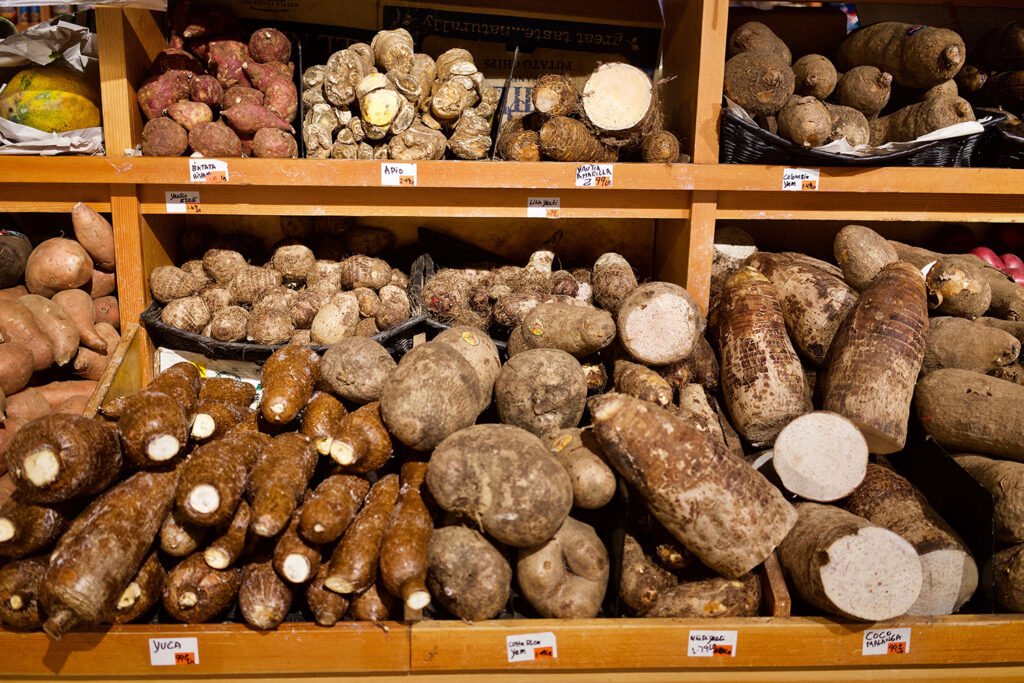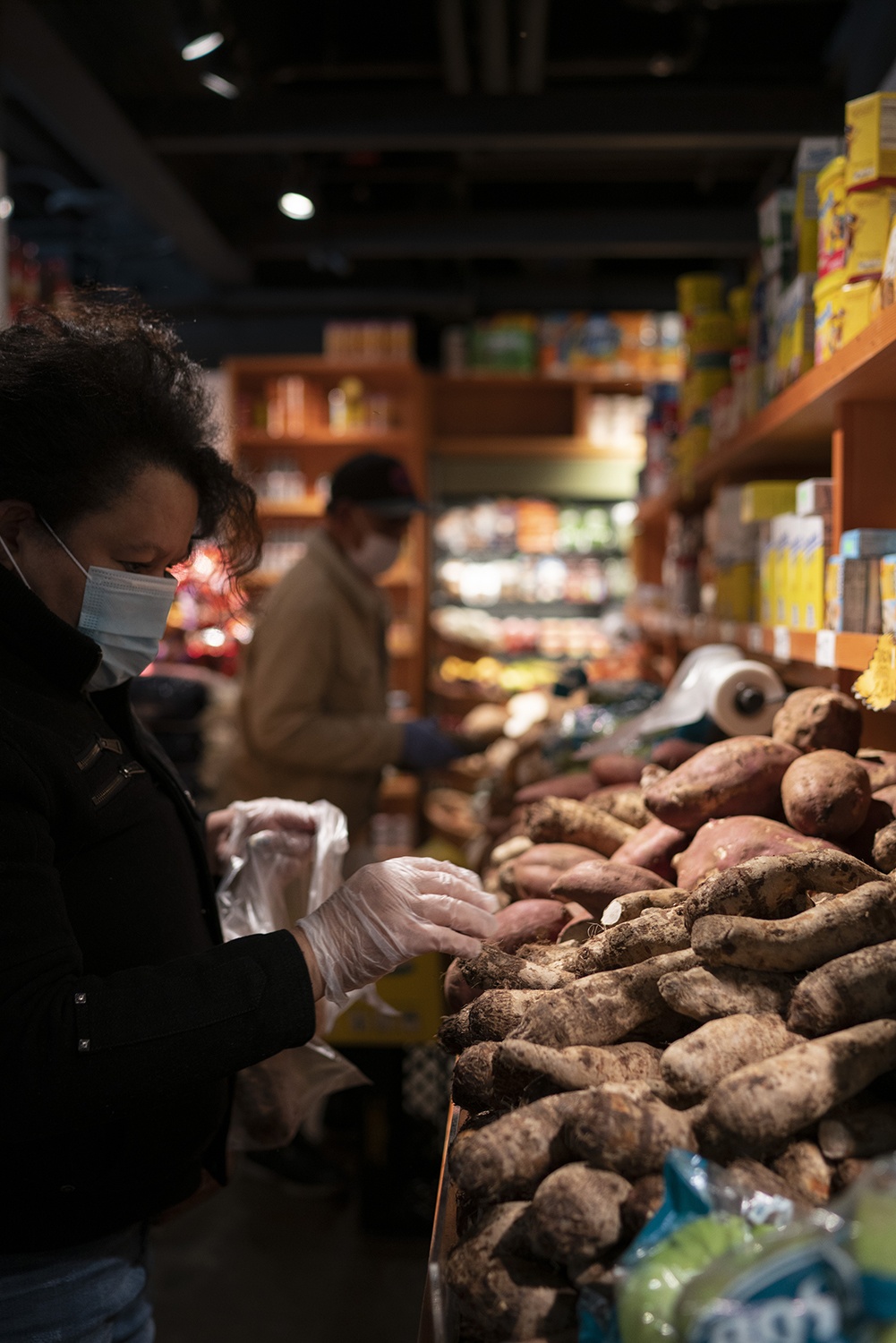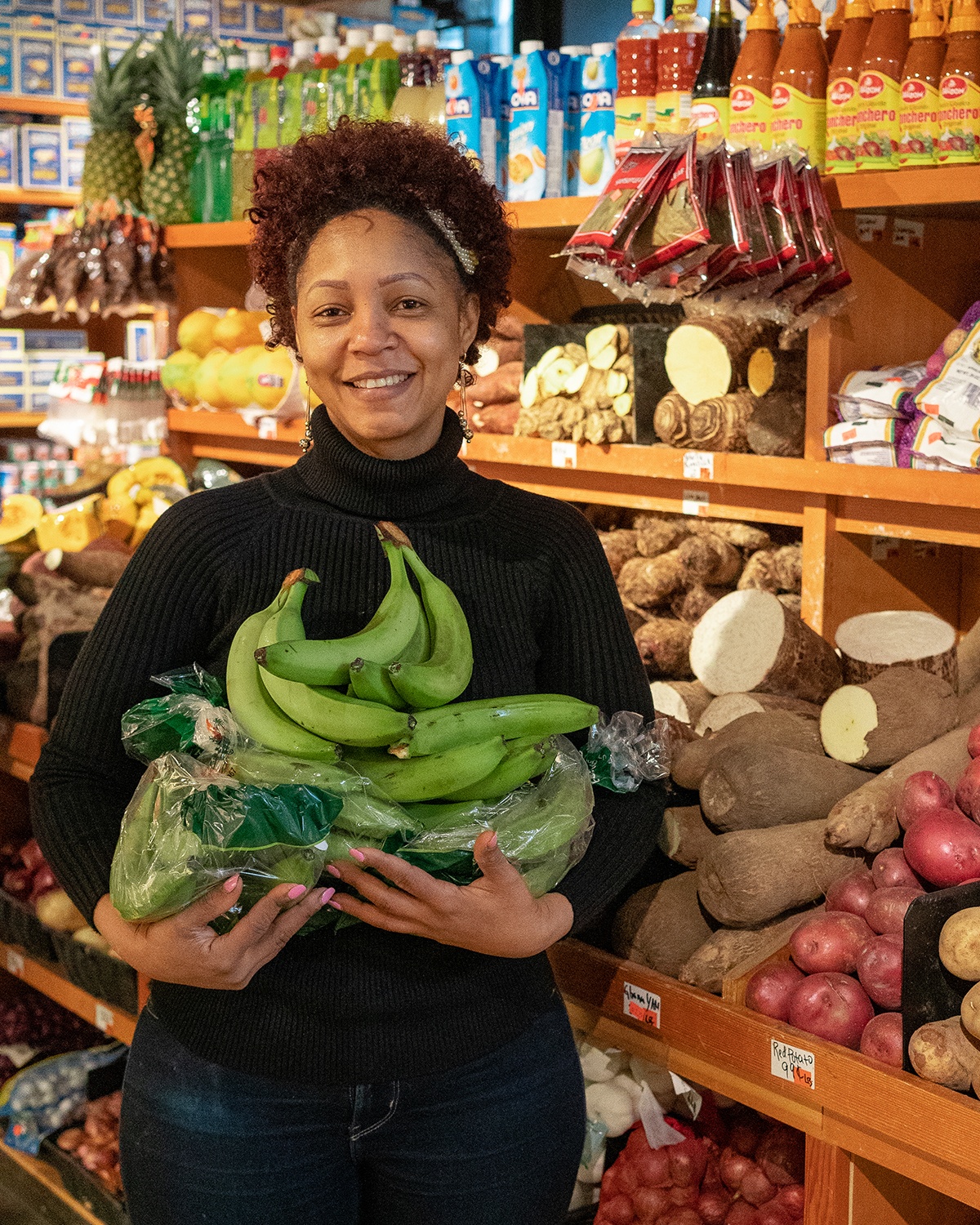When the first chill descends upon New York City, the search begins in earnest for pasteles — wrapped masa-and-meat filled bundles — to serve as part of many Nuyoricans’ holiday celebrations. From Thanksgiving through Three Kings’ Day, the search can be divided into two camps: those seeking Caribbean ingredients needed to make pasteles at home — including but very much not limited to: green banana, yautía, and banana leaf — and those asking neighbors and friends if la doña from last year is selling her famous pasteles again.
You see, taking on the task of the pastelada is no small feat. Every family, chef, and tía has their own recipe, but make no mistake: this is an all-day affair. There’s the laborious undertaking of grinding mass amounts of starchy vegetables; cooking a perfectly spiced stew filling; and individually wrapping each one in banana leaf and parchment paper. Then, an hour of boiling in hot, salty water before your pasteles are ready to be unwrapped like a gift on Christmas Day.
But it’s this labor of love, in fact, that makes homemade pasteles ripe for tradition. The whole family must get involved, assembly-line style, to complete the task. And around the table, while the grandkids are grating green bananas and abuela is tying the little packages together with twine, stories are shared and family bonds are formed.


